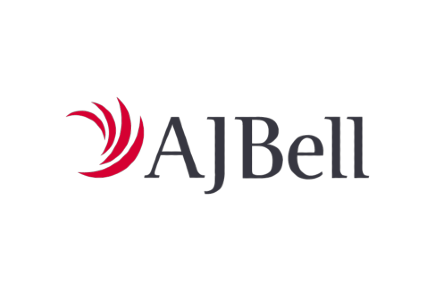When you begin investing and start to develop your own portfolio, one of the first things you’ll notice is that you have a wide variety of choices. You’ll need to think about issues such as which asset classes you’d like to invest in to match your risk profile.
One of the options that you may want to consider is mutual funds, which are a type of investment fund. As the name suggests, these involve pooling your money with other private investors. It sounds simple enough, but you might be wondering what the benefits are of investing in this way?
In this comprehensive guide, you’ll find out what mutual funds are, how mutual funds work, and how you can make money from them.
Best investing platforms to buy mutual funds
The following list of investment platforms allow you to purchase mutual funds
AJ Bell Youinvest
- Over 2,000 funds available
- Low cost dealing charge of just £1.50
- Competitive custody charge from 0.25%
Remember that investments go up and down in value, and you could lose money as well as make it. How you’re taxed will depend on your circumstances, and the rules can change.
Hargreaves Lansdown
- Over 3,000 mutual funds to choose from
- No charge to buy or sell funds
- Invest from just £100 or £25 per month
As with any investment the value can go down as well as up. Past performance is no indicator of future performance. The tax treatment of ISAs depends on your individual circumstances and may be subject to change in the future.
Interactive Investor
- Over 3,000 funds to choose from
- Fund ideas from the ii Experts
- Range of ready made portfolios
Capital at risk.
What are mutual funds?
Mutual funds are essentially a type of investment fund, in which several shareholders pool their money. Instead of buying assets individually, you invest your wealth into a fund that holds a variety of stocks and shares and other asset classes.
Mutual funds typically contain hundreds of different assets and the amount of returns that you receive is dependent on how well they perform, as well as how much you have invested.
What are the benefits of investing in a mutual fund?
There are several benefits of mutual funds investing.
Diversification
The main benefit of investing in mutual investment funds is that you only need a single investment to get a diversified portfolio.
This can help to reduce how much risk you’re exposed to, and if your investments are focused in one particular market sector or asset class, a market crash could have a considerable impact on your wealth.
Access to a wide range of investments
Mutual funds might be invested in the US or UK stock market, in Europe, or in emerging markets.
Instead of going through the effort of having to research and then buy shares in various large stock market companies, when you invest in funds, you can benefit from ready-made portfolios. Not only does it reduce your risk but it also takes a significant amount of hassle out of the process.
Since the hard work of diversifying your investments is already done for you, investment funds can be a convenient option for new investors.
What does a fund manager do?
Typically, funds are managed by professionals known as fund managers and it’s their job to manage them in line with the fund objectives. In exchange for services offered, you need to pay an annual fee to your fund provider.
The investment goals of a fund could be anything from matching the performance of a particular index, such as the FTSE 100, or maximise returns while focusing on sustainability.
The role that the fund manager plays is typically determined by whether the fund is “passive” or “active”.
“Star” fund managers
Some “star” fund managers have made a successful career of investing in stock markets in a way that has generated excellent returns. Investing in funds managed by these “stars” can sometimes generate excellent returns.
What are the differences between passively and actively managed funds?
If you’ve done any research on the topic, you’ve probably come across the choice between active funds and passive funds. While it’s easy to be put off by the jargon, it’s much simpler than you may think.
Passively managed funds
The aim of a passive fund is to deliver investors a return that’s in line with a particular index. They simply have to replicate the growth of a market, rather than beat it.
One of the most common indices that passive funds try to match is the FTSE 100, which is an index of the 100 largest companies listed on the London Stock Exchange. A passive tracker fund will buy shares in all these 100 companies, with the number of shares corresponding to their proportion of market value.
This should mean, theoretically, that the value of the fund will mirror any changes in value in the FTSE 100. If the value of the FTSE 100 rises, the value of your investments should rise accordingly.
Since your fund manager doesn’t actively choose which investments to hold in the fund, its performance should mirror the market. This means that if there is a fall in the stock markets due to a crash, you may see lower returns.
Actively managed funds
In contrast to their passive counterparts, the manager of an active fund aims to beat the chosen index for their fund. The way fund managers do this is by picking and choosing stock market investments with the help of a team of analysts and researchers.
While returns from passive funds may fall due to a stock market crash, since they are essentially mirroring its performance, this isn’t always the case for active funds. The manager of an active fund would be able to react to the disruption by selling their assets from troubled sectors and reinvesting elsewhere.
Of course, the problem with this is that there is no guarantee that the fund manager will choose investments that can regularly outperform the index.
While they might have years of experience and the most talented team of researchers to help them, at the end of the day it can be difficult to accurately predict all market movements. Some assets may fall in one year, only to jump in value in the next.
If you do opt to invest in an active fund, you may want to look at the manager’s previous track record to see their record of picking funds and how well they performed. Of course, it’s worth remembering that when it comes to investing, past performance is no guarantee of future performance.
How are they different from index funds?
If you’ve read about index funds before, you might be thinking that they sound remarkably similar to actively managed mutual funds.
While index funds have a lot in common with how mutual funds work, there is one key difference: that index funds only invest in a specific list of assets. Mutual funds have more freedom for where to invest, meaning that the fund manager has more free rein, allowing them to search for returns more effectively.
This translates into three practical differences:
- Index funds typically seek market-average returns, while mutual funds seek to outperform the market.
- Since the fund manager of a mutual fund has a more intensive job, due to having a greater choice of potential investments, annual charges tend to be higher.
- Index funds tend to be relatively predictable, whereas the performance of active mutual funds is not.
How do I make money with a mutual fund?
There are essentially two main ways to make money with a mutual fund, through capital gains and through dividends. But before we take a closer look, there’s one piece of jargon that I need to explain and that’s Net Asset Value (NAV).
Net Asset Value (NAV)
This is essentially the total value of the assets held by the mutual fund on behalf of the investors at their current market price.
For example, let’s say that your mutual fund holds 100 shares in a large company, with each share being worth £50. This means that the NAV of the mutual fund is £5,000.
Now that you understand that, let’s take a look at how you can make money from a mutual fund.
Capital gains
To put it simply, if you invest in a mutual fund and the NAV increases then the value of your investment will also rise. This means that you may see a large return when the time comes to sell your shares.
For example, let’s assume that you decide to invest £10,000 of your wealth into a mutual fund at the start of 2022. At the time of purchase, the NAV of this fund is £1 billion.
Fast forward to the end of the year and, after several months of strong economic growth, the NAV has risen to £2 billion, an increase of 100%. This means the value of your investment has risen from the initial £10,000 to £20,000.
Of course, much like with a traditional stocks and shares investment, you won’t be able to benefit from the increase until you sell your shares in the fund.
At this point, it’s important to bear in mind that you may have to pay Capital Gains Tax on the profits if your gains exceed your annual Capital Gains Tax exemption (£12,300 in the 2021/22 tax year).
For this reason, you may want to seek financial advice before investing, as working with a professional may be able to help you to understand the tax rules that come with it.
Dividends
As well as potential capital gains, mutual funds can also be a good way of earning a regular income through dividends. Essentially, a dividend is a chunk of a company’s profit that is paid out to shareholders.
While the process is slightly different from simply buying a dividend share yourself, the principle is essentially the same. If the mutual fund that you invest in holds shares in companies that pay dividends, then you will be entitled to a portion of them.
For example, let’s assume that you have £10,000 invested in a mutual fund. This particular fund holds shares in a large company and receives four quarterly dividends at an annualised yield of 5%. The company’s shares also make up 10% of the mutual fund’s total portfolio.
Since you have £10,000 invested in the fund, and the company’s shares make up 10% of the portfolio, in effect you have a £1,000 stake in the company. This means that, with quarterly dividends at an annualised yield of 5%, you will get an annual return of £50.
Of course, this is a very simple example as there are many factors that influence how much you could receive in dividends.
Furthermore, it’s also important to note that you have an allowance for how much income you can receive from dividends in a given tax year. If you want to ensure that you don’t go over this limit, you may want to speak to a financial advisor.
How much am I likely to pay in fees?
One of the main benefits of a passive fund is that much of the difficult parts are done for you by the fund manager. They analyse the market, buy stocks and shares, and sell so that you don’t have to. Of course, as you might guess, this comes at a price.
Typically, the fees of mutual funds fall into one of two categories:
Shareholder fees
This category covers a variety of fees that you may have to pay when undertaking certain actions. These can range from a small flat fee to a regular ongoing one. Some of the charges in this category include:
Redemption fees
This is the charge you may have to pay if you sell your shares within a short period of time after buying them. Depending on the fund, this period could range from several days to over a year.
Exchange fees
You may have to pay these charges if you transfer your shares to another fund offered by the same fund provider.
Account fees
These are the fees that your provider may charge you to maintain your account. A common reason for triggering these fees is if your account falls below a minimum investment amount.
Annual fund operating expenses
Typically, mutual funds charge an annual fee to cover operating costs. For example, this could be the salaries of the fund manager and analysts. Typically, this will be a percentage of your total investment and most funds charge between 0.25% and 1.5% a year.
For example, if your mutual fund charges an annual fee of 0.5% and you have £10,000 invested with them, you would have to pay £50 each year.
Most mutual funds will also offer you a more favourable rate if you invest larger amounts, such as more than £100,000.
How do I choose a mutual fund?
When it comes to choosing which mutual fund to invest in, it’s important to consider your options carefully as there can be a lot to think about. If you want to find the right funds for you, here are three useful tips to bear in mind:
Do your research before investing
Before you take your hard-earned money out of your bank account and invest in a fund, it’s important to do some research.
For example, you may want to find out more about the management team and the past history of the fund. While past performance is no guarantee of future success, knowing more about how the fund has performed can give you a sense of confidence.
You may also want to look at independent ratings from other investors to find out more about the mutual fund that you’re interested in.
Compare the fees of different funds
It’s important to be aware of how much you would have to pay in fees when you’re comparing mutual funds. While the difference between funds can seem small, over the long term they can add up to significant amounts.
Furthermore, not all investment funds charge users the same fees. For example, one fund may have a lower annual charge but higher shareholder fees. It’s important to think carefully about how much they could add up to in the long term, as high fees may eat into your wealth.
Seek professional advice if you’re unsure
As you probably know, when faced with a difficult choice, it pays to be able to make an informed decision. This is why, if you’re not sure about where to invest, you may benefit from seeking professional investment advice.
Working with a financial advisor can help to give you a greater sense of confidence by acting as a sounding board when you’re making investment decisions. They can also look at your individual circumstances to find investments – perhaps unit trusts, open-ended investment companies, ISAs, or other investment funds – that are right for you.
Overwhelmed with how to invest?
Connect with a Financial Adviser near you for FREE.
- Learn how to invest in the FTSE100
- Have you considered transferring your pension?
- Find the best trading platforms



